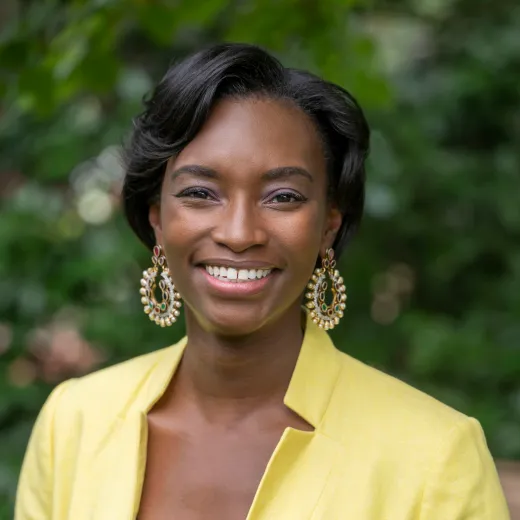Natalie Grandison
Years at the Foundation
Natalie joined the Foundation as the Director of Engineering Initiatives in 2018. She was named Director, Higher Education and Strategy in 2024. In this role, she managed the Foundation’s signature academic program, the A. James Clark Scholars Program, established at 11 campuses nationwide. Natalie also managed the Foundation’s multi-year investment of $219.5 million to the University of Maryland. In addition, she initiated investments to grantees that exposed students to STEM careers, provided institutions with tools and strategies to improve their policies and practices to best serve students, and encouraged education leaders in finding creative solutions to support students inside and outside of the classroom.
Natalie previously served as the Director of External Relations in Mechanical Engineering at the University of Maryland College Park, where she focused on development, corporate and public relations, external outreach, and communications. Prior to that, Natalie worked in development at George Washington University, City Year Washington, DC, and student affairs at New York University.
Natalie serves as an Advisory Board Member for the National Institute of Student Success at Georgia State and is a Trustee of the University of Virginia Engineering Foundation. Her other previous board leadership includes service on the board of Jubilee Jumpstart and as President for the Board of Directors for the Congressional Chorus, where she is also a singer and dancer. Natalie holds a bachelor's degree in sociology and business and a master's in public administration from New York University. She currently lives in Washington, DC with her husband and daughter.
Q: Do you have any projects or outcomes of which you are particularly proud?
A: I am particularly proud of the broader influence our scholarship programs have had—especially on students who were not directly funded by the Clark Foundation. Through strong relationships with our grantees, I held strategy sessions that not only resulted in policy changes and expanded resources for our own scholars, but also positively impacted students across partner engineering schools and, in some cases, the wider university. It’s especially meaningful to hear higher education leaders share how they have successfully advocated for broader student support using data and insights from our programs. Knowing that my work has created ripple effects beyond its initial scope is incredibly rewarding.
